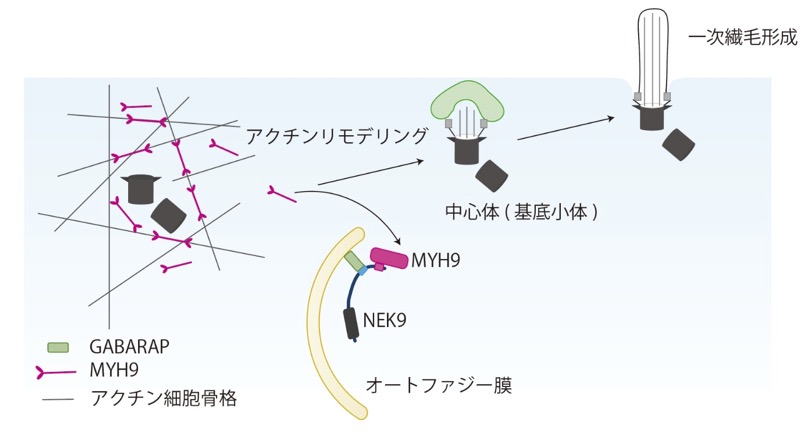Recent Publications (Original)
NEK9 regulates primary cilia formation by acting as a selective autophagy adaptor for MYH9/myosin IIA (Yamamoto, et al., Nat. Commun.)
2021.06.02 Recent Publications (Original)
Yasuhiro Yamamoto, Haruka Chino, Satoshi Tsukamoto, Koji L. Ode, Hiroki R. Ueda, Noboru Mizushima
NEK9 regulates primary cilia formation by acting as a selective autophagy adaptor for MYH9/myosin IIA
Nat Commun 2021 Jun 2;12(1):3292. doi: 10.1038/s41467-021-23599-7.
Autophagy regulates primary cilia formation, but the underlying mechanism is not fully understood. In this study, we identify NIMA-related kinase 9 (NEK9) as a GABARAPs-interacting protein and find that NEK9 and its LC3-interacting region (LIR) are required for primary cilia formation. Mutation in the LIR of NEK9 in mice also impairs in vivo cilia formation in the kidneys. Mechanistically, NEK9 interacts with MYH9 (also known as myosin IIA), which has been implicated in inhibiting ciliogenesis through stabilization of the actin network. MYH9 accumulates in NEK9 LIR mutant cells and mice, and depletion of MYH9 restores ciliogenesis in NEK9 LIR mutant cells. These results suggest that NEK9 regulates ciliogenesis by acting as an autophagy adaptor for MYH9. Given that the LIR in NEK9 is conserved only in land vertebrates, the acquisition of the autophagic regulation of the NEK9–MYH9 axis in ciliogenesis may have possible adaptive implications for terrestrial life.


